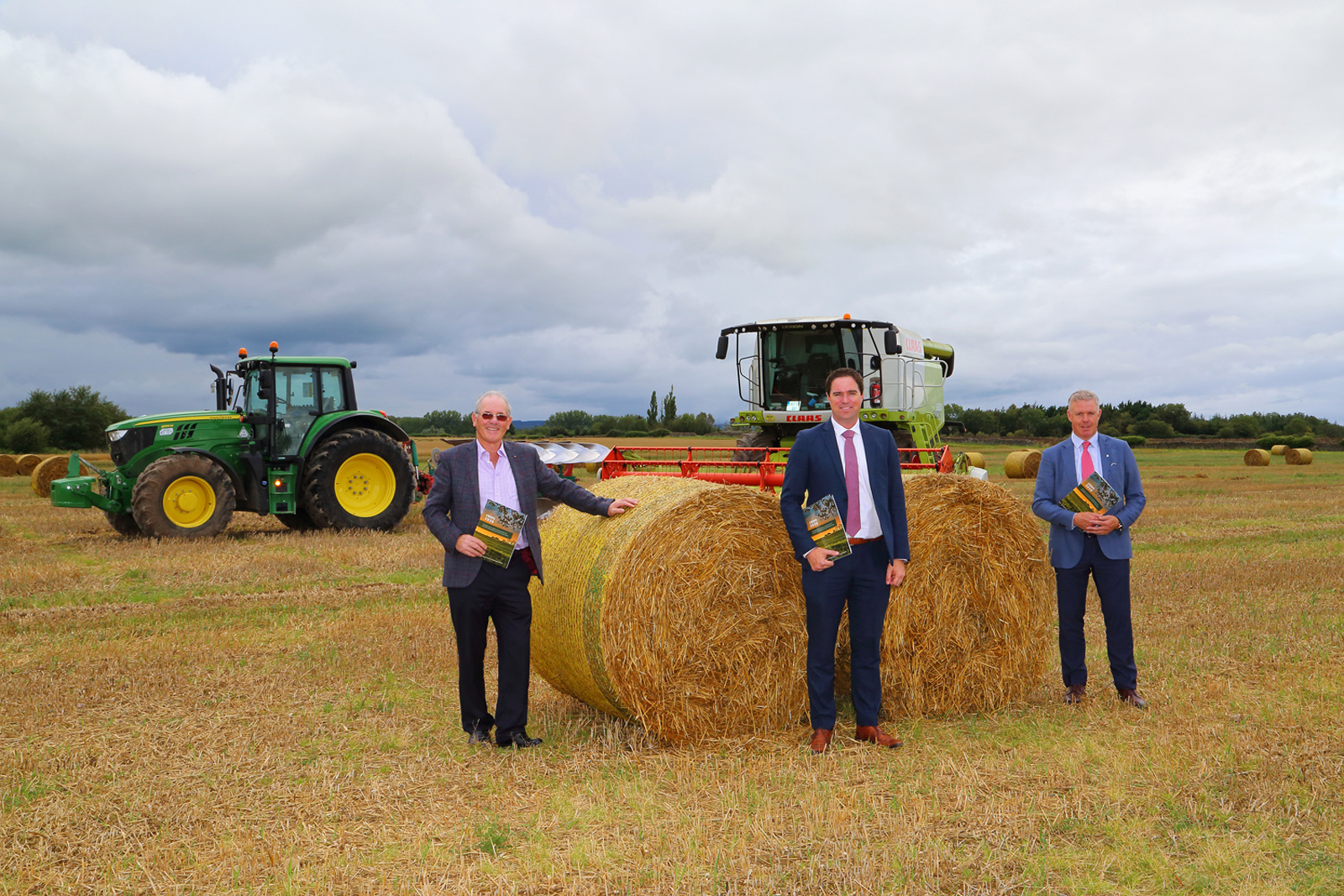Major report on the strategic plan for the Irish Crops sector launched
The Teagasc Tillage Stakeholder Consultative Group and Minister Heydon has launched a key report, for the Irish Tillage sector entitled Crops 2030 – A strategic plan to deliver environmental and economic sustainability for the Irish Crops Sector.
The report assesses the current state of the sector and provides 54 tangible recommendations. These collectively highlight how tillage farming in Ireland can make a significant contribution to meeting national Greenhouse gas reduction targets, supporting the authenticity and sustainability credentials of Irish exports and exploits the provenance of our native grains to market a suite of Irish produced food and drink products.
 Minister Heydon said: “I welcome this report as the the tillage sector is a critical component of the Irish Agri-Food industry. It is an important source of livestock feed, straw and increasingly providing native raw material for the brewing, distilling and high value food product markets. Its sustainability is crucial to Irish agriculture”.
Minister Heydon said: “I welcome this report as the the tillage sector is a critical component of the Irish Agri-Food industry. It is an important source of livestock feed, straw and increasingly providing native raw material for the brewing, distilling and high value food product markets. Its sustainability is crucial to Irish agriculture”.
Donal Fitzgerald, of Goldcrop is the Chairperson of the Teagasc stakeholder group, which also comprises of industry experts and farmers alike said: “This report brings together the opportunities and challenges that tillage farmers will have to face over the coming years. It also highlights specific areas where, if developed, will help to improve the environmental, financial and social sustainability of the entire tillage sector. Like many other farming sectors, we recognise that unless we can make ‘working the land’ attractive and suitably rewarding to young farmers, then the future supply of locally sourced, environmentally safe low carbon footprint food will be in jeopardy. That is how serious this situation is “.

Pictured from (L to R) were: Ollie Whyte, Dublin Farmer; Minister of State Martin Heydon, T.D., Department of Agriculture, Food and the Marine and Donal Fitzgerald, Goldcrop.
The report identifies areas where native cereals can be further developed to help substitute imported ingredients currently used in the food, drinks and animal feed sectors. There are substantial opportunities to increase native grain uses in cereal-based foods and oats products. There are also opportunities in cold pressed oils and potato products, which can contribute to healthier diets and help tackle obesity. The drinks industry is increasing exports year-on-year and there is further potential to increase grain supply to this industry to offset imports and hence support the legitimacy of labelled products.
The level of animal feed imports has increased dramatically from two million tonnes in 2008 to over four million tonnes in 2018, with much of the additional demand driven by the expansion of the dairy sector. Ireland imports animal feed ingredients from over 60 countries, many of which have production systems associated with high GHG emissions and negative impacts on biodiversity. Substitution of many of these imported ingredients represents a significant opportunity for the Irish crops sector, with potential to produce both energy and protein crops for the feed market.
Irish tillage crops produce the lowest amount of GHG per unit area or per unit of output compared to all our other main agricultural production systems. So, replacing imported animal feeds with traceable, locally produced, starch and protein grains presents an opportunity to significantly decrease our carbon footprint whilst enabling the crop sector to expand production and fulfil its potential within Irish agriculture.
Through this publication the Stakeholder Group, hope to make a major contribution to the development of Irish agriculture the industry over the next decade years said John Spink, Head of Crops, Environment and Land Use Programme in Teagasc. The work and effort by the group to get broad industry acceptance is commendable we are lucky to have such a group of individuals who give of their time freely to support the sector and have the insight to compile such a report he added.
The Crops 2030 report is available at https://www.teagasc.ie/
Exert for the Crops 2030 report